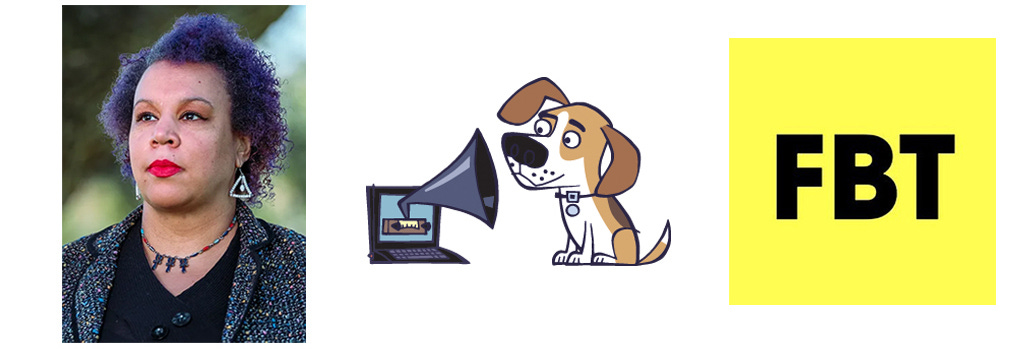Dr. Tabia Lee is an educator and consultant. She was the faculty director for the Office of Equity, Social Justice, and Multicultural Education at De Anza College until she was fired for her heterodox views on DEI. (Her GoFundMe is here.) She’s also a cofounder of Free Black Thought.
You can listen to the episode right away in the audio player above (or on the right side of the player, click “Listen On” to add the Dishcast feed to your favorite podcast app — though Spotify sadly doesn’t accept the paid feed). For two clips of our convo — on teaching kids as individuals, and the wrong way to ask for pronouns — pop over to our YouTube page.
Other topics: Lee as a gifted-and-talented student; her mentoring kids as a kid; graduating high school in two years; critical thinking as a core value; intellectual humility and curiosity; Lee teaching public school in LA; California voters banning affirmative action in 1996; how teacher ideology clouds the classroom; humanism over identity politics; Lee as a pioneer of pronoun use in the early Internet; “inquiry-based” teaching and holistic instruction; the race of students being just one of many factors; not focusing on stereotypes; the moral certitude of DEI; the need for viewpoint diversity; the “neo-reconstructionism” of Kendi and DiAngelo; the dangers of teaching as activism; the abandonment of SAT and other standardized testing; the wasteful spending in public education; and the attacks that Lee faced as a heterodox DEI director.
Browse the Dishcast archive for another conversation you might enjoy (the first 102 episodes are free in their entirety — subscribe to get everything else). Coming up: Erick Erickson on the showdown between Trump and DeSantis, Dave Weigel on all things politics, Jean Twenge on the key differences between the generations, and Matt Lewis on ruling-class elites. Send your guest recs and pod dissent to dish@andrewsullivan.com.
A listener enjoyed last week’s episode with David Grann about his history of an 18th century shipwreck and mutiny:
You guys were having a lot of fun and I had to laugh.One of my favorite books is Two Years Before the Mast by Richard Dana, but Grann’s book sounded more than I could take. Yet it was refreshing for the Dishcast to have no Trump and no trans.
Haha. Another listener on another episode:
I really enjoyed your conversation with Susan Neiman on her leftist case against woke, and I share your frustration with much of the new woke rhetoric flying around today. However, at the 26:36 mark, you casually tossed out this aside:
The idea that the most important thing about me is that I’m “English” or “white,” when those are actually two identities I’ve never really thought that much about … [chuckling] … They are minor in my general world view compared to things like “Catholic” or “gay” or “middle child” and all the rest of it.
I may be wrong, but my inexpert ear even sensed a hint of judgmentalism in your chuckling. Only because it is germane to this subject, I report that I am a cis, white, heterosexual, male, self-employed, progressive, devout Episcopalian (do we really exist?), former clown, former computer developer, inventor, woodworker, Oxford comma fan, and loving spouse, parent and grandparent. (Now I feel truly vulnerable — I rarely put myself out there.)
Despite my demographics, I don’t think it takes a lot of imagination to realize that not having to think about one’s racial identity is a luxury — dare I say a privilege —that is denied most minorities living in the U.S. today.
Every time a black person, for example, enters a store, sits for a job interview, applies for a loan, sits across from another person on public transportation, or even just walks down the street, their race colors the interactions, or considerations denied, or the micro-aggressions (yes, they are a thing). Depending upon where one lives, and especially for those of lesser means, this fact of existence can be a constant stressor for non-whites. And summed up through generations and generations, this amounts to a gross injustice against personal freedoms and economic discrimination. All of which amounts to real, ongoing, human suffering.
I know you are no stranger to cruel prejudice and discrimination, but your dismissal of your race as a central part of your identity belies the huge role it has played in opportunities offered to you and discrimination you have been spared. It also risks enabling a certain blindness to the reality of real suffering for so many people of color in our country. Blindness is the gateway to indifference, and I view “indifference to human suffering” as my short-hand definition of evil.
Now, I cannot for one second entertain the idea of you — the intelligent, caring, moral person I have come to know you are — as ever indifferent or evil. But there is indeed something evil in the mix. Be it zoning laws, or bank loan algorithms, or club membership policies, or the myriad entrenched obstacles that you and I never faced, these insidious forces work behind the scenes making it possible for those who benefit from them (by exclusion) to ignore them. And addressing this societal evil begins with seeing it clearly, caring deeply about it, and owning up to the role of “white indifference” on the individual level, but also in the broader body politic.
As Bryan Stevenson argues, proximity is key to truly understanding and addressing injustice. Once you become closer friends with more people of color (and I mean regular people, not just highly educated eloquent intellectuals), you begin to better understand what they have to deal with every day. You find yourself noticing when the “dog doesn’t bark” in situations in your own interactions with other white folk and thinking, “That would have gone quite a bit differently had I been a young/old male/female black/hispanic person.”
Color blindness — that impossible ideal — is longer an option. “Not my problem” is no longer an option. I have come to realize that, through no choice of my own, my whiteness is an important part of my identity. And with that unearned privilege comes a responsibility to own that fact, to repudiate the authority of the status quo, and work to promote awareness among my fellow whites. Yes, “whites.” That is a significant part of who we are.
This is worth a much longer response than I can offer here. But a couple of things:
Listen to this episode with a 7-day free trial
Subscribe to The Weekly Dish to listen to this post and get 7 days of free access to the full post archives.













